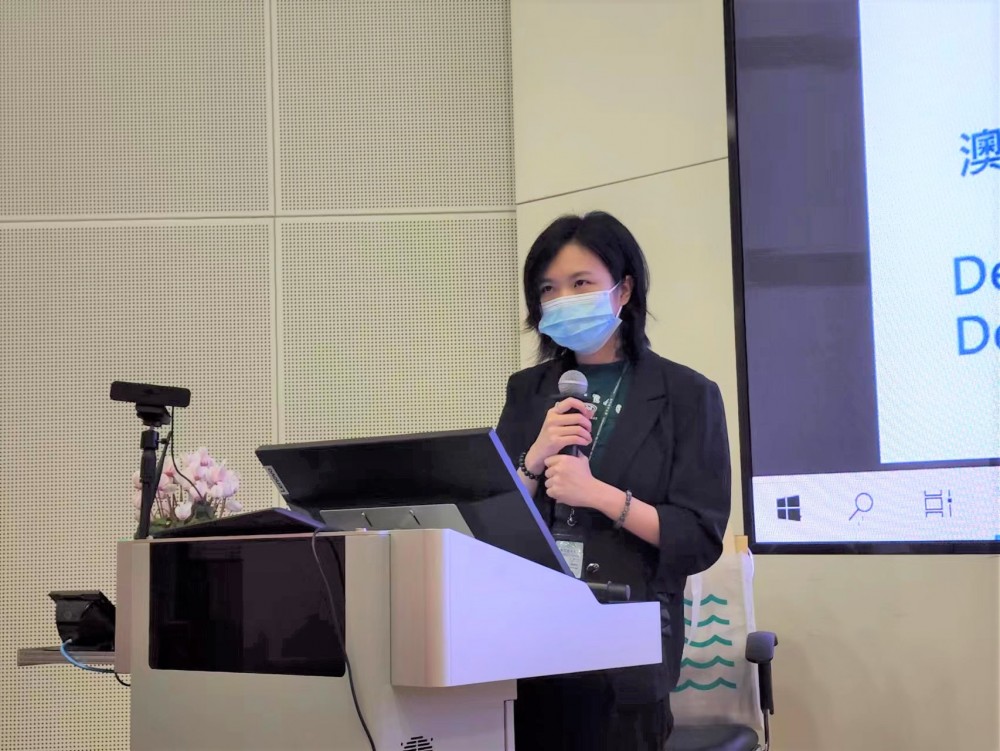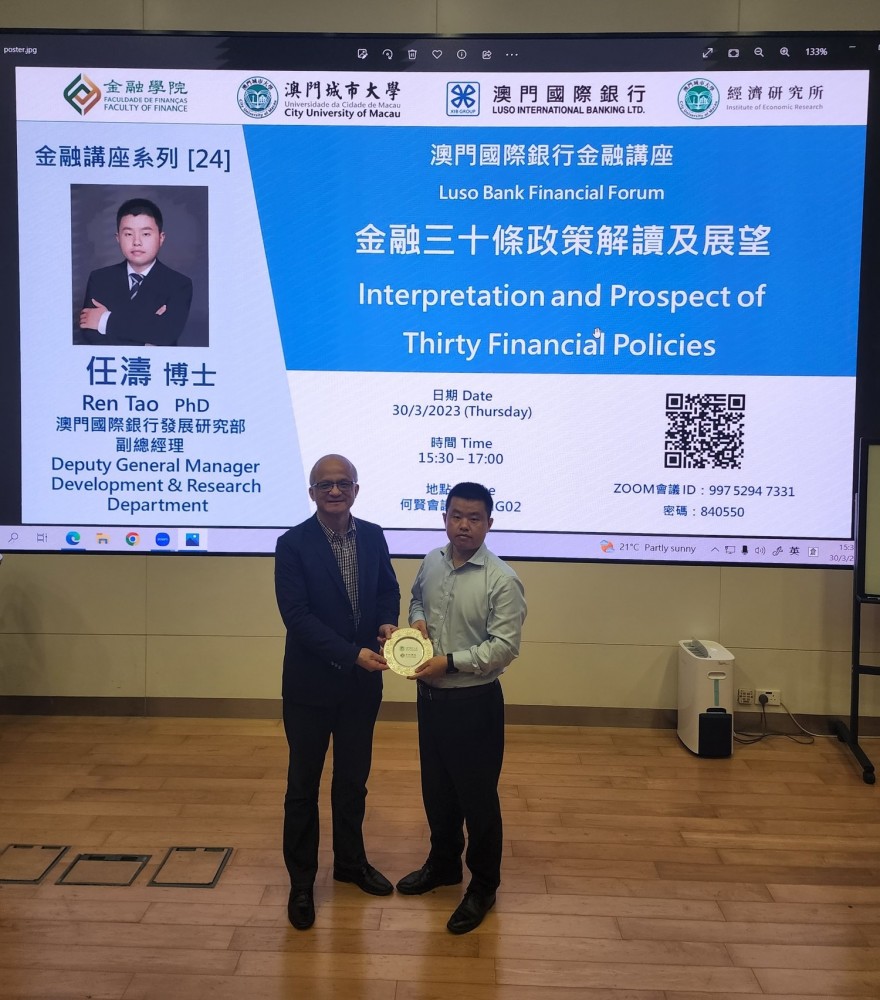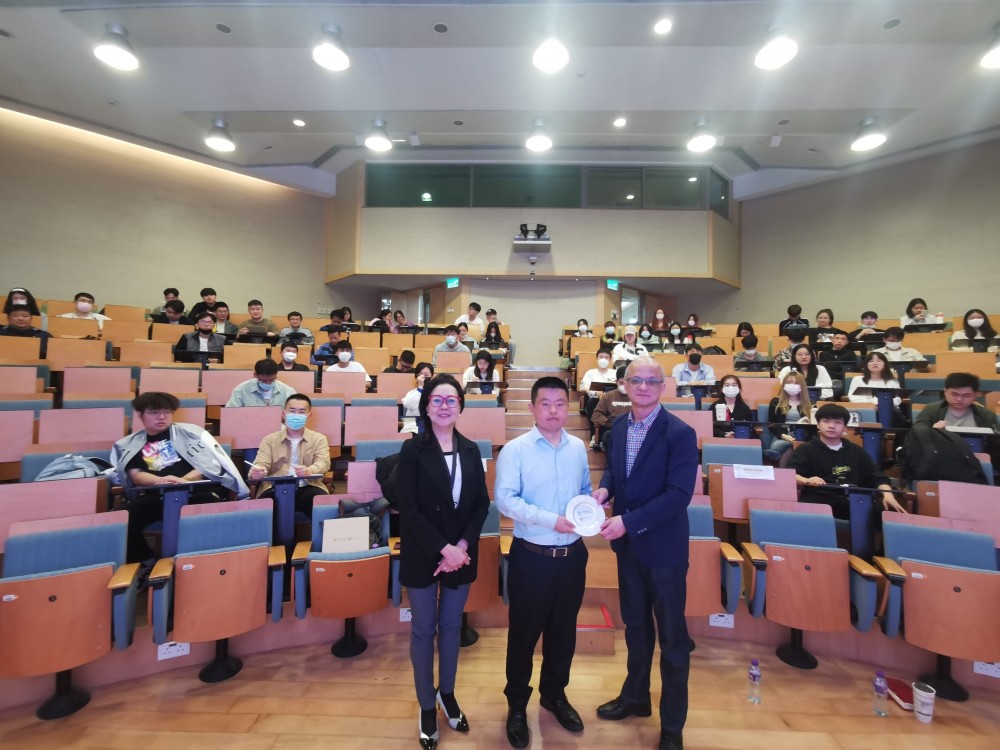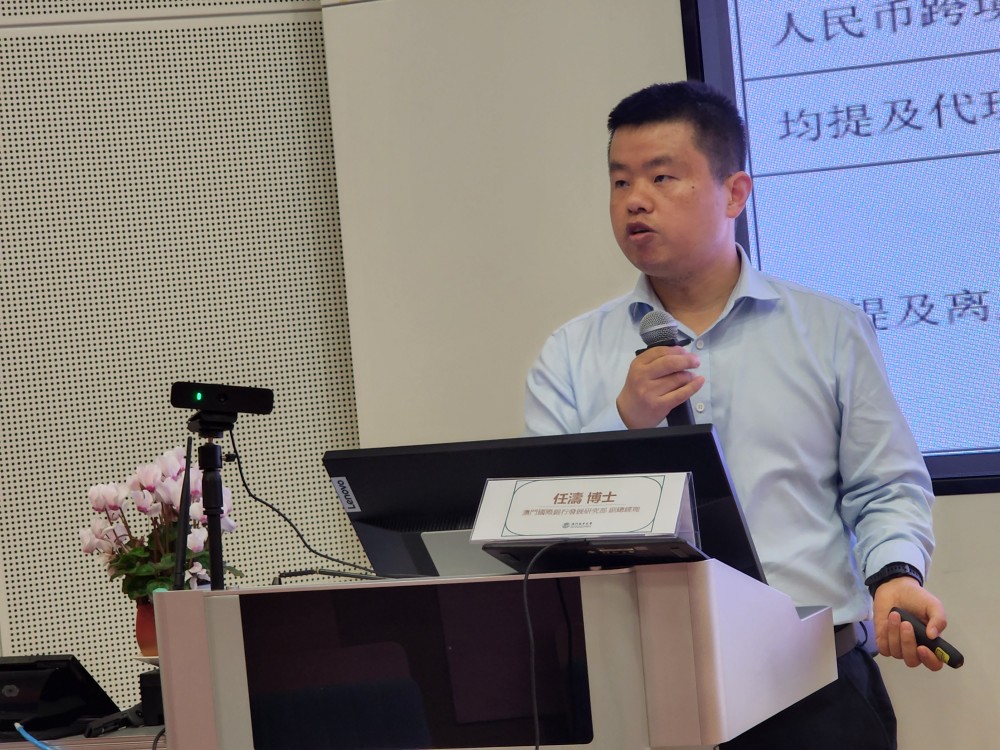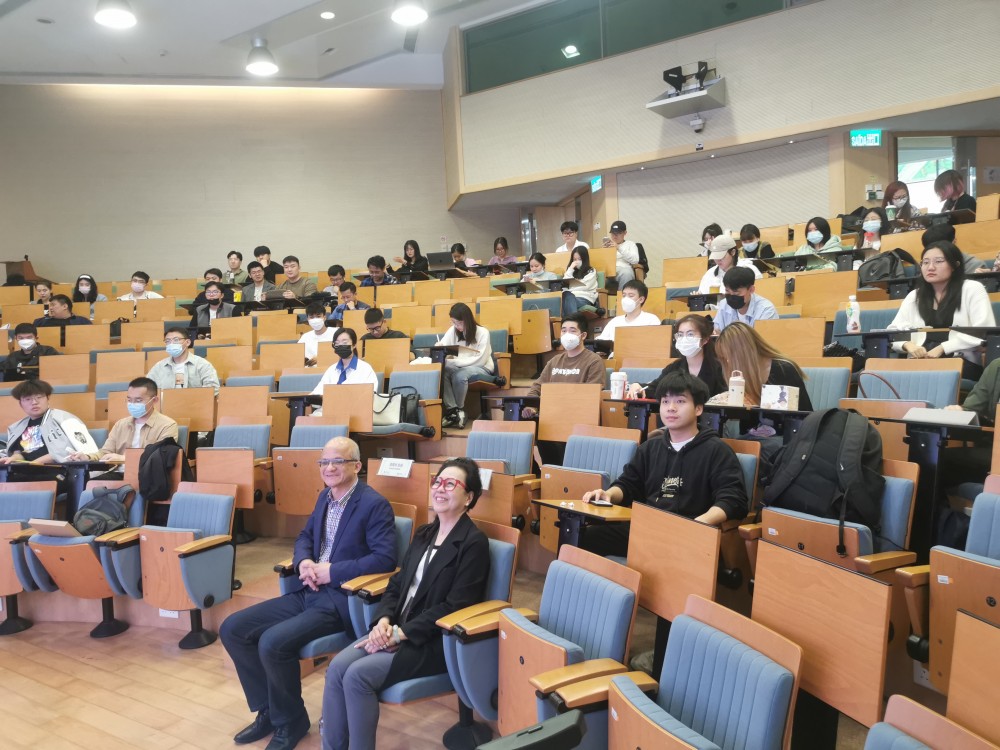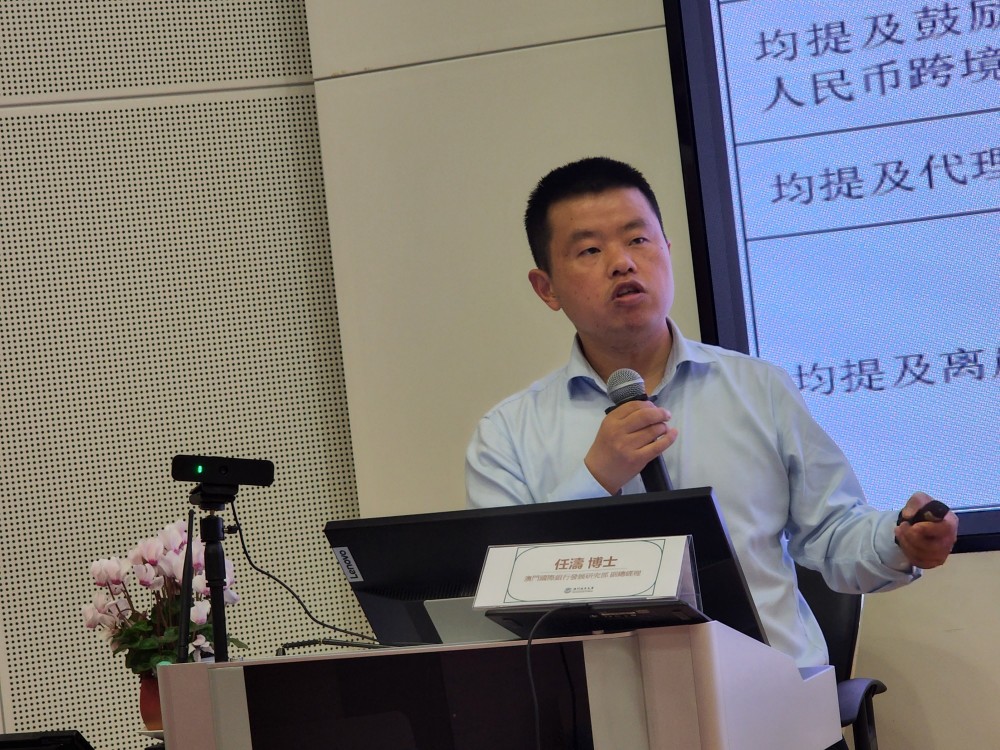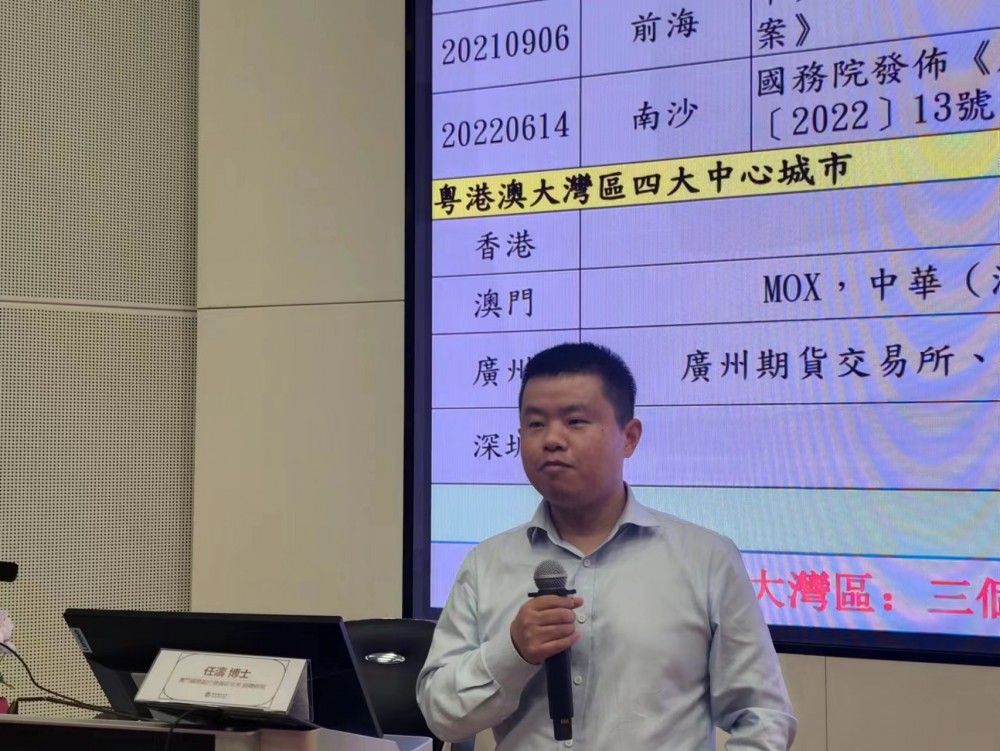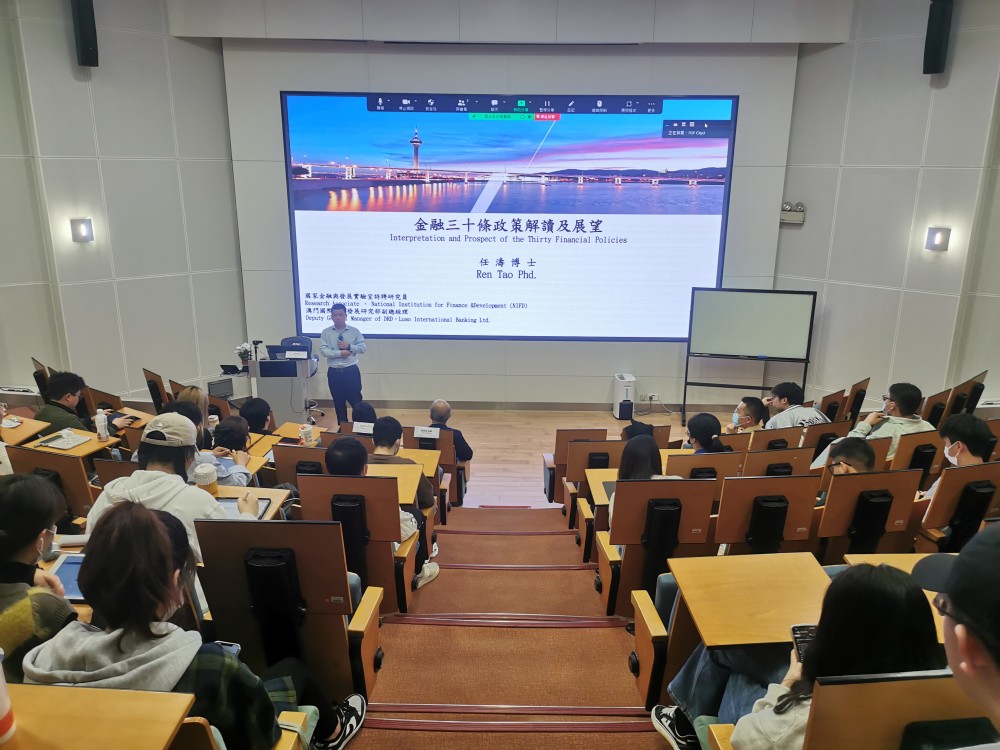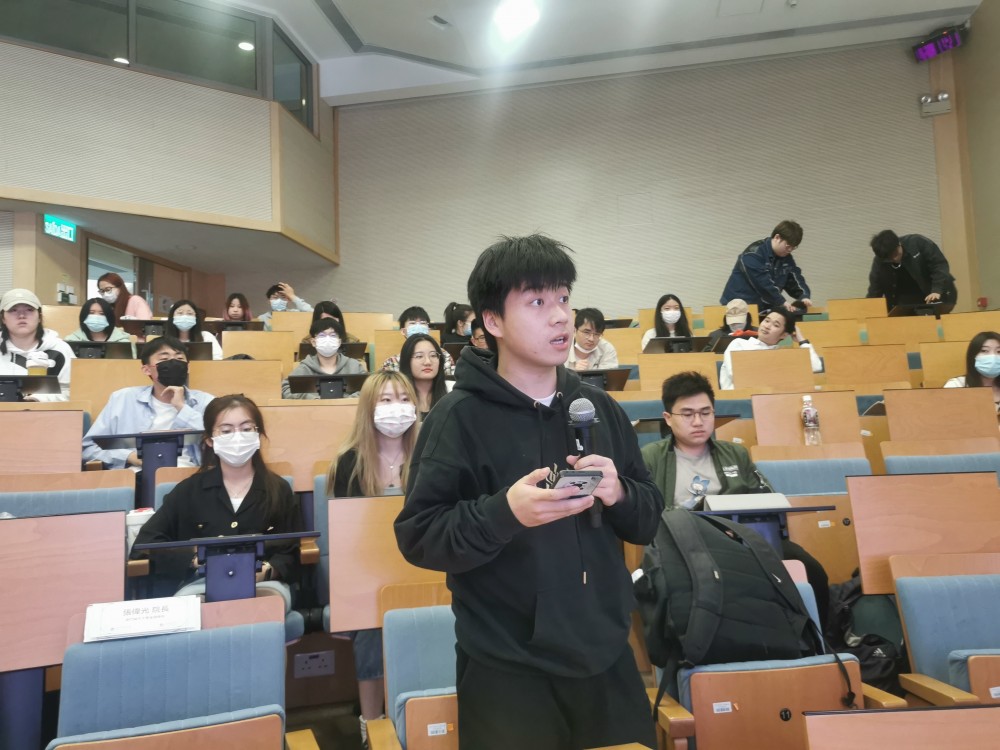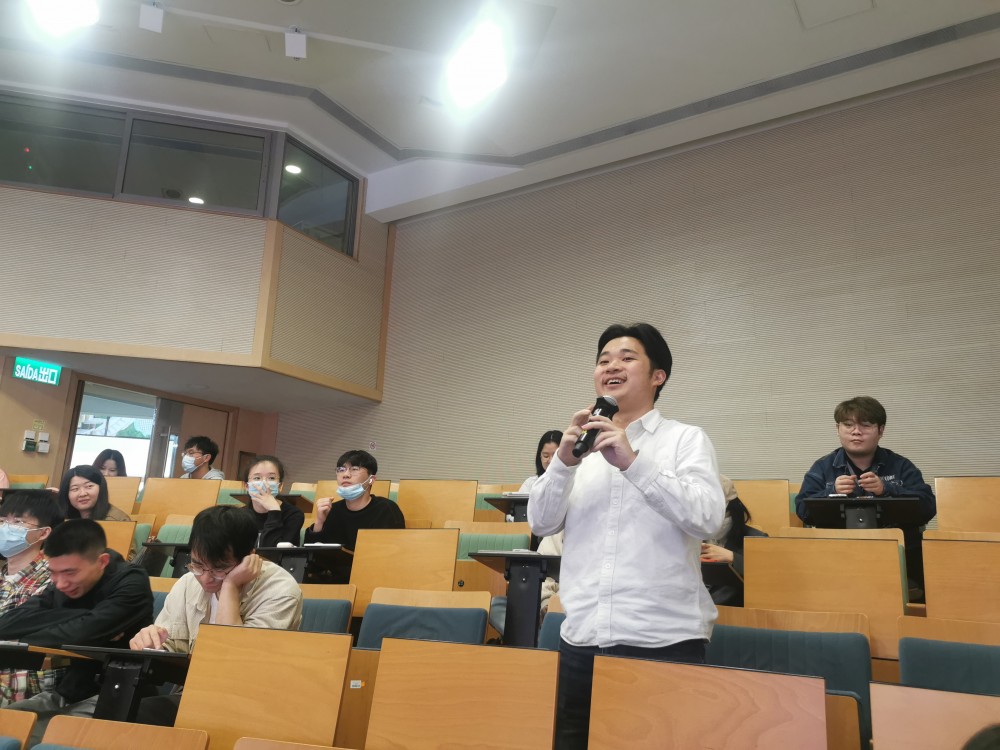On 30 March 2023, the Faculty of Finance of the City University of Macau held the Finance Seminar Series [24] Luso Bank Financial Forum at the Ho Yin Convention Centre. Dr. Tao Ren, Research Associate of the National Institution for Finance & Development and Deputy General Manager of Development Research Department of Luso International Banking Ltd., was invited to deliver a speech titled “Interpretation and Prospect of Thirty Financial Policies”. Guests attending this seminar include Dean Adrian Cheung and Associate Dean Eva Khong of Faculty of Finance, City University of Macau.
To begin with, Dr. Ren introduced the basic situation of the Greater Bay Area and explained the 30 financial policies. The Greater Bay Area comprises three customs areas, three currencies, four central cities, three core leading areas and one co-managed area. On February 8, 2023, Guangdong issued the Regulations for Promoting the Development of the Guangdong-Macao In-Depth Cooperation Zone in Hengqin to delegate the authorization power, clarify the division of responsibilities and rights and interests between the cooperation zone and Zhuhai, and promote the integration of Hengqin and Macau. On February 23, 30 Financial Policies for Hengqin and 30 Financial Policies for Qianhai were issued, aiming to basically establish an electronic fencinge system and cross-border financial management system in the cooperation zone, and establish and improve a policy and management system that focuses on the opening up of the financial industry and the internationalization of RMB in Qianhai, Shenzhen and Hong Kong by 2025.
Dr. Ren analyzed a policy comparison between Hengqin and Qianhai, and pointed out that Qianhai supports Hong Kong-funded small and micro enterprises to obtain RMB loans from overseas banks within the limit of 5 million yuan, encourages Hong Kong asset management institutions to set up joint financing ventures in the cooperation zone, and first mentions "cross-border asset management business". Also, Qianhai tends to expand the business scope of Hong Kong-funded financial institutions and increase the limit of overseas loans for enterprises in the cooperation zone from 50% to 80% of the owners' equity. On the other hand, Hengqin allows Macau in the cooperation zone to freely exchange RMB to a certain extent, and the restrictions on the use of foreign exchange by Macau residents in the cooperation zone and the cooperation zone residents are relaxed. Macau residents in the cooperation zone can open securities market accounts with financial institutions in the cooperation zone and participate in the mainland securities market. The opening of FT account based on the electronic fence is a highlight, and overseas banks can also participate in it. The "wealth management" of the modern financial industry has become "asset management", and the connotation of the bond market has changed.
Dr. Ren introduced the development of the financial industry in Hong Kong and Macau. Hong Kong's banking industry is home to 70 of the world's top 100 banks, with total industry assets exceeding US $3 trillion. Its bond market is the third largest in Asia, next to Mainland and South Korea. Hong Kong has the largest international fund management center and international private wealth management center in Asia, the largest offshore RMB capital pool in the world, and about two-thirds of China's inward and outward investments are conducted through Hong Kong. Macau's financial system is a modern and open financial system with regional characteristics. The financial industry is the third largest industry in Macau, after the gambling industry and the real estate industry. The financial industry is dominated by the banking industry, supplemented by the insurance industry, and Chinese-funded banks are the main force in Macau's banking industry. Over the years, it has played an important role in promoting the moderately diversified development of Macau's real sector economy.
Hong Kong and Macau are both free ports and offshore financial centers with a high degree of internationalization. Issuing bonds in Macau will deal with funds from all over the world, including the mainland, Hong Kong, Macau and Southeast Asia, providing high-quality investment targets for global investors. At present, there are 15 overseas banks operating in the mainland of the Greater Bay Area. The future of Hong Kong and Macau lies in the Greater Bay Area while the future of Macau lies in the cooperation zone. Dr. Ren cited the Outline Development Plan for the Guangdong-Hong Kong-Macao Greater Bay Area and the General Plan for Building a Guangdong-Macao In-Depth Cooperation Zone in Hengqin as positioning the financial sector of Hengqin and Macau. It aims to build a financial service platform between China and Portuguese-speaking countries, and enhance the breadth and depth of Macau's financial market and its financial capacity that emits to the Portuguese-speaking countries. Macau and the cooperation zone have inherent advantages in the development of offshore and cross-border finance, such as policy-driven momentum, which has intensified the two-way opening-up of the financial sector.
At the end of the sharing session, students took this valuable opportunity to actively pose questions related to the financial industry in Hong Kong, Macau and the Greater Bay Area, and Dr. Tao Ren answered in detail. In the Seminar, the students paid attention to the 30 financial support measures opportunities for Macau, and better understand the advantages of Macau in the Greater Bay Area, which is helpful to grasp the current development trend of finance. The students also expressed their expectations for the sharing of the next finance seminar.



